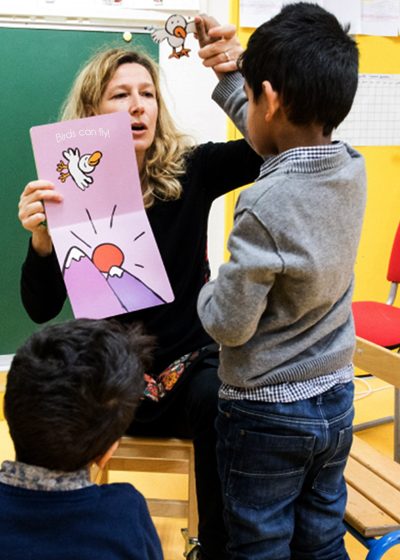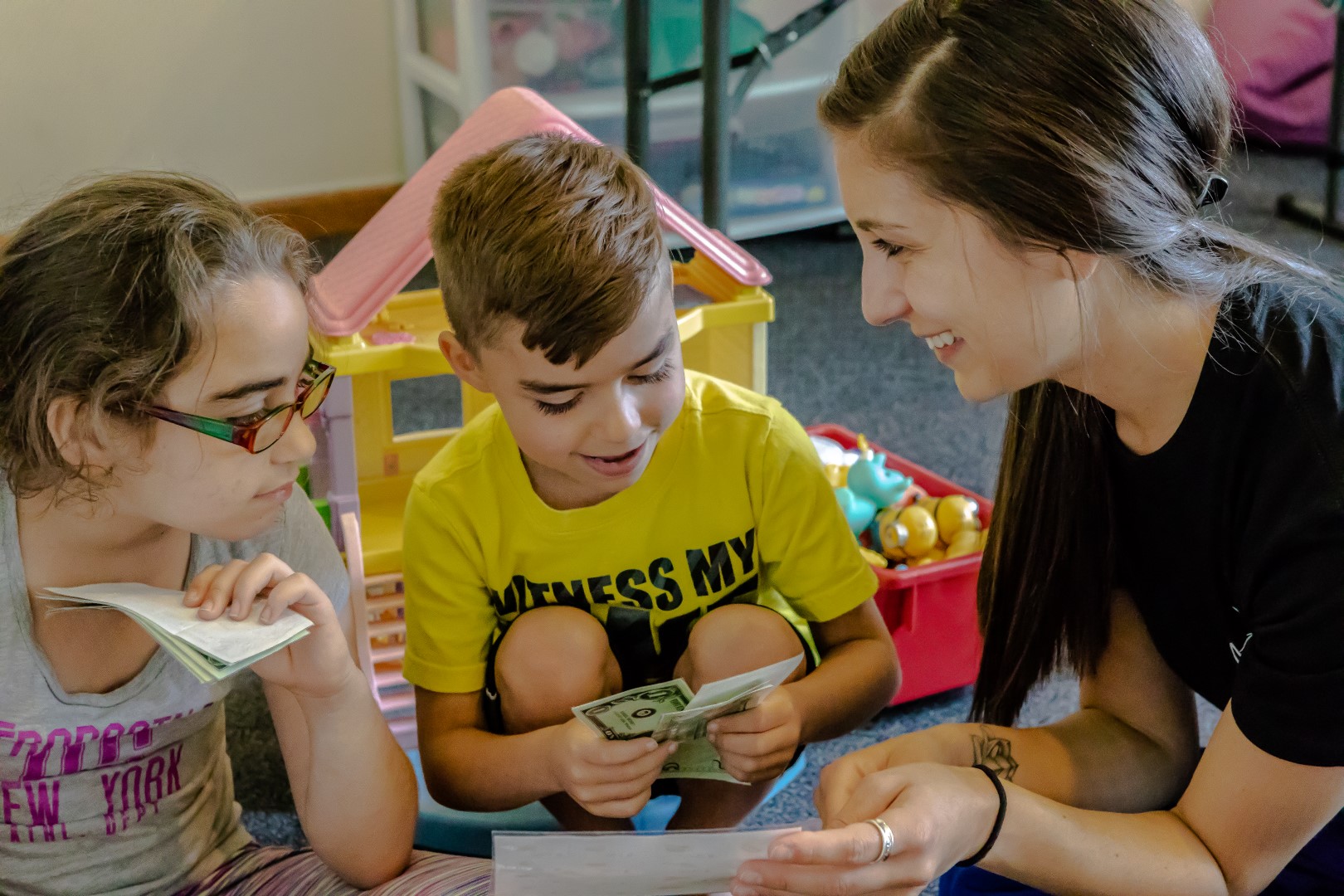Speech Therapy

Speech-language therapy at the Spark Center is individualized for each child’s unique needs. Informal and formal speech-language assessments help to determine the strengths and weaknesses of a child’s communication and specific goals are created to address these areas. Speech therapy sessions may be structured, play-based, or a combination and may take place in a treatment room or play environment involving peers depending on a child’s goals, performance, and level of generalization.
Recommendations for the number of sessions will be dependent on your child’s individual needs. It is important to know that more is not always better. Your therapist will work with you to determine an appropriate schedule and provide additional resources to support the recommendations.
What is Speech Therapy?
Speech-language therapy can be used to treat a variety of communication needs, such as language disorders, speech disorders, and swallowing problems, among others. Speech and language are different, and an individual can have problems with one or both. Speech is how we say sounds and words, and language refers to the words we use and how we use them to get our needs met and share ideas.
Some common issues we address include speech disorders, receptive and expressive language disorders, fluency, articulation, voice, and swallowing.

What is it used for?
While this information is not comprehensive of all that speech-language pathology is used for, areas that are commonly addressed may involve the following:
Relative to Speech
- Articulation/Phonological Disorders
- Fluency or Stuttering
- Voice Disorders
- Sound Production Errors
Relative to Language
- Receptive Language Disorders
- This can include difficulty following directions, answering questions, identifying objects, and understanding basic concepts
- Expressive Language Disorders
- This can include weak vocabulary, difficulty putting multiple words together, issues with grammar or word order, and issues expressing wants and needs
- Pragmatic Language Disorders
- This can include difficulties with turn taking, conversational skills, interpreting and utilizing appropriate body language, and displaying appropriate play skills
While many of our clients have a diagnosis of autism, an ASD diagnosis is not necessary to receive speech therapy services from us. Our therapists work with a variety of disorders and communication issues. Like with most of our services, different diagnoses may change the insurance coverage, so it is important to be familiar with your insurance benefits.
What to Expect
Initial Evaluation
Your child will be evaluated by a speech-language pathologist (SLP) for speech and/or language concerns prior to beginning speech-language treatment. Based on the SLP’s observations and parent report, your child will be evaluated for their area(s) of concern relative to communication. Assessment will include both standardized testing and informal evaluation. The SLP will select the standardized assessment(s) that is/are most appropriate for your child based on their area(s) of concern, age, and skill level. A parent/caregiver may also be asked to fill out a questionnaire regarding speech-language skills that will be compared to findings from the SLP’s evaluation. The evaluation typically takes between 30-60 minutes. Within approximately one week, the SLP will analyze the findings and write a report, treatment goals, and recommendations based on the results. This information will be reviewed with you. If services are recommended, the SLP will work with you to schedule treatment sessions.
Monthly Updates
Approximately every 60 days, a written progress note will be sent home. The progress note will review the current goals your child is working on, their progress towards these goals, recommendations for home practice, and any upcoming changes. You or the SLP may schedule parent meetings to further review this information if necessary.
Re-Evaluations
At least every 12 months, the SLP will re-assess your child’s communication skills. Any current areas of communication concern as well as any arising communication concerns may be addressed. Based on the findings, the SLP will adjust speech-language goals and create updated recommendations for services. This information will be sent home and/or reviewed with you. Re-evaluations may occur after less than 12 months if deemed appropriate.
Process
Ready to start speech therapy for your child? Follow the steps outlined below:
Fill out our Referral Form
Click here to fill out our secure referral form, and someone from our team will reach out with more information about our onboarding process, and any potential wait times. Alternatively, you can give our office a call at 248-238-9772.
Insurance Verification and Paperwork
You will need to have a script or referral order from your child’s doctor. We will verify your insurance benefits, but you are also responsible for knowing your own benefits. If you need assistance with finding out this information, let us know! We are happy to help. In the meantime, we will have you fill out our onboarding paperwork. You can also use this form to help check your benefits.
Schedule the Evaluation
Once you complete the paperwork and we have verified your insurance benefits, we will work with you to schedule the initial evaluation, and the follow up meeting with your therapist!
Scheduling Options
Each speech session is 30 minutes and depending on specific insurance requirements and limits, may be scheduled between 1 and 4 times per week. If your child also receives ABA services at the Spark Center, speech sessions would occur within that particular schedule. Otherwise, your child’s SLP and our scheduling team will work with you to determine your child’s schedule.
Our speech therapy services are available between 8:30-5:30 Monday-Thursday, and 8:30-3:30 on Fridays. If your preferred time is unavailable, we can place you on a waitlist for that preferred time.


